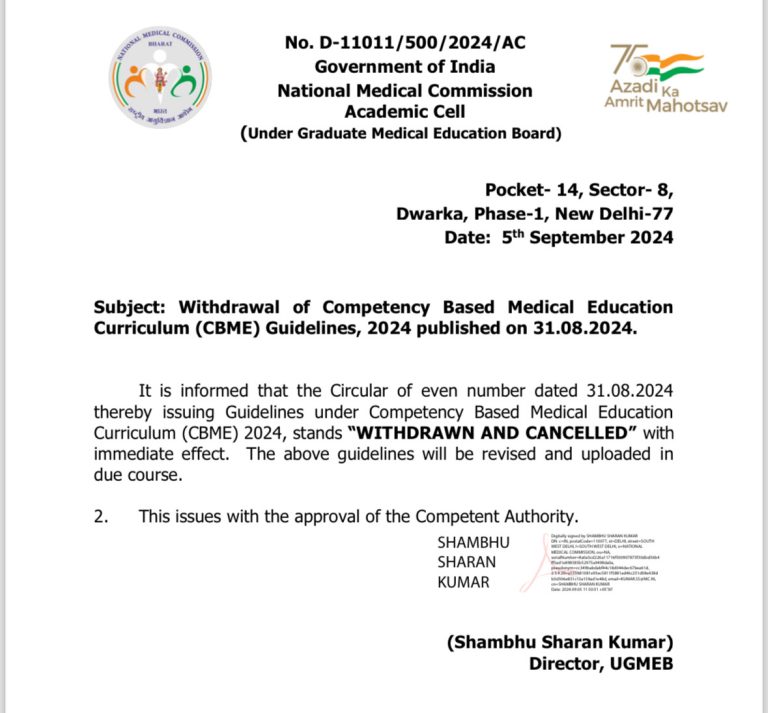Changes Withdrawn, Bias Remains?: Repeated Revision of MBBS Curriculum
In 2022, after the Madras High Court highlighted the need for a curriculum that is sensitive to the LGBTQ+ community, the National Medical Commission (NMC) revised the MBBS curriculum. Sodomy and lesbianism were removed from “unnatural sexual offenses”, a distinction between sexual fetishes was introduced, the “two-finger test” for virginity, and defloration were removed.
On 31st August, the NMC made several regressive revisions to the curriculum. These have now been withdrawn, however, it is important to examine them carefully.
What Were the Revisions?
The Competency Based Medical Education Guidelines, 2024 (CBME) had the following revisions:
- Reinstated sodomy, lesbianism, and buccal coitus as “unnatural sex offenses”.
- Introduces hymen and its types, medico-legal importance of hymen, defining virginity, defloration, its legitimacy and medico legal importance.
- Removed the seven-hour disability training for students
After a lot of criticism from student communities, activists, educators, et cetera, the revised guidelines were withdrawn on 5th September.


Why Does It Matter?
Scientifically uninformed guidelines like the ones in CBME 2024 instill regressive views about the queer community, women’s sexuality, and differently abled people. They reinforce the ideas of purity culture. Even though they have been withdrawn, they reflect that the authorities do not have a firm stance on making the curriculum inclusive or bringing about permanent and meaningful reform to medical education.
In a country like India, where state authorities are revered and paternalised, decisions of such authorities can be very influential in informing attitudes of the public. When they do not have a clear and supportive view, it translates into batches of medical professionals who cannot (or will not) cater to many sections of society. This makes life saving care inaccessible and distressing to queer people, women, and differently abled people.
What Can You Do?
All of us, in one way or another, are stakeholders in this situation. The withdrawal of revised CBME Guidelines is a testament to the fact that public pressure and scrutiny can drive change.
Here are some things you can do:
- Reaching out to authorities: Write to authorities that design the curriculum, demand a scientifically sound and inclusive system.
- As a teacher: Stay up to date with latest developments in the field, question whether what you are teaching is a product of personal and/or societal biases.
- Self-education: Seek out information from credible resources on sexual and reproductive well-being to educate yourself. This helps one in identifying misinformation.
- Advocacy in personal communities: Use your education to start important conversations within your immediate circles, change and awareness does not always have to begin on a large scale.

Conclusion
Curriculum changes can inform public morality and have long term effects on how our systems work. As stakeholders, it is our responsibility to educate ourselves and keep our institutions accountable.
Here are some resources you can start with!
Author

